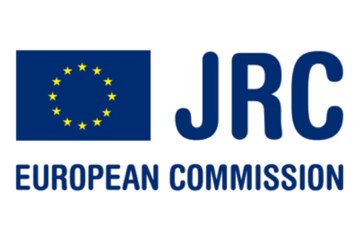Final evaluation of the project to support takeover bids for the palm oil and rice sectors (ACORH) Guinée
![]() AGRICULTURE
AGRICULTURE ![]() TRANSVERSAL
TRANSVERSAL


Services: Monitoring, evaluation and capitalisation
Countries: Guinée
Dates of intervention: 2011/10 - 2011/11
Amount executed: 17 660 €
Total amount of the service: 17 660 €
Main backer: Commission européenne - Client
Main beneficiary: Groupe de recherche et d’échange technologique
Support provider: Olivier BOUYER
Experts: Olivier BOUYER
Certificate of satisfactory executionRapport d'évaluation finale du projet d'amélioration des capacités des organisations des filières riz et huile de palme en Guinée
Context of the service
Funded by the "Food Facility" managed by EuropeAid, the ACORH project, implemented by the Research and Technology Exchange Group (GRET) and the Guinean House of Entrepreneurs (MGE), with the support of many local partners, aimed to strengthen the production and processing of rice and palm oil in Upper Guinea and Forest Guinea, to strengthen the capacities of Professional Agricultural Organizations (OPAs) working in these sectors and to structure them, particularly at the interprofessional level.
With a budget of €1.3 million, the ACORH project had three specific objectives: (i) The conditions of production and storage of paddy are improved, (ii) The supply of net rice and quality palm oil is increasing and better supplying urban centres, (iii) The structuring of the sector facilitates consultation between stakeholders and with local and national authorities.
Implemented over 23 months (December 2009 to October 2011), it was coming to an end and GRET and the Delegation of the European Union in Conakry wanted to benefit from a comprehensive final evaluation in order to draw lessons from this first phase and prepare for a possible second phase.
Services provided
Following the usual logical evaluation approach, the mission produced detailed techno-economic, organisational and strategic analyses against the OECD-DAC key evaluation criteria: Relevance; Efficiency; Efficiency; Impacts; Viability.
This involved a lot of literature analysis work and numerous field meetings with the OPAs supported by the ACORH project, the ACORH/MGE/GRET project team, the ACORH project partners. In particular, 41 takeover bids (10% of takeover bids supported, representative sample of each of the takeover categories) were interviewed.
Overall, the impacts on food security are positive, but differ according to the sector: mixed upstream of the rice sector (dispersion of energies over different agroecological zones, standard and sometimes poorly adapted technical package, etc.), positive upstream of the oil sector (concentrated support and well-followed, with ad hoc advice), positive on the downstream of both sectors (satisfaction of processors and traders with regard to financial support, technical, organizational).
The recommendations were as follows, in the hypothesis of a 2nd phase: 1/ Limit takeover bids and the area of intervention, 2/ Consolidate the reflection of the sector of the umbrella POs, 3/ Put the beneficiaries at the center of the actions.
Summary of the service
Final evaluation of the project to support takeover bids for the rice and palm oil sectors (ACORH), implemented in Upper Guinea and Guinea Forestière by the NGO GRET: Field meetings with the supported OPAs, the project team and its partners; Techno-economic, organizational and strategic analyses; Assessment according to OECD-DAC criteria; Recommendations in the hypothesis of a 2nd phase.